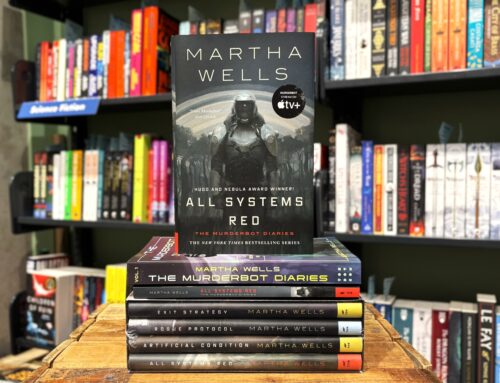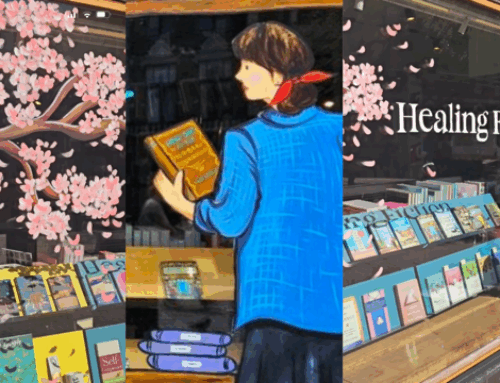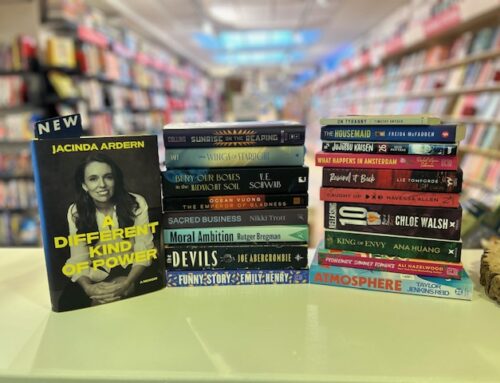by Naomi
This week two books were released that have their origins in fanfiction: Rose in Chains by Julie Soto and The Irresistible Urge to Fall for Your Enemy by Brigitte Knightley. A third book, Alchemised by SenLinYu, will be published in September. All three authors have been writing within the Dramione fandom, which features Hermione Granger and Draco Malfoy from the Harry Potter series.
The Irresistible Urge to Fall for Your Enemy is an original work and not re-written fanfiction, but the origins of the story are still visible for those who have read the author’s fanfiction (Draco Malfoy and the Mortifying Ordeal of Being in Love) and are familiar with the (fandom) dynamic between Hermione Granger and Draco Malfoy.
Rose in Chains and Alchemised, on the other hand, are reworked versions of two of the key texts of the Dramione fandom: The Auction and Manacled, respectively. The works have been “pulled to publish”, which is when an author repurposes their fanfiction into an original story. Julie Soto is no stranger to this, as her sophomore novel Not Another Love Song, is reworked Reylo fanfiction (Rey and Kylo Ren, from Star Wars).
In fact, there are several published authors whose work has been pulled from fandom sites. Ali Hazelwood, for example, is another popular author with origins in the fandom community. Several of her books, most notably The Love Hypothesis, are reworked Reylo fanfiction. Some other Reylo fanfiction writers whose work got pulled to publish are Katrina Kwan, Thea Guanzon, Kate Goldbeck, Lana Ferguson and Jenna Levine. (If you’ve ever wondered if all the cover illustrations look like the actor Adam Driver, yes, they do.)
Anna Todd wrote real-person fanfiction based on Harry Styles, which was published as After. Outlander by Diana Gabaldon is Dr Who fanfiction. The Mortal Instruments by Cassandra Clare is Harry Potter fanfiction. E.L. James’ Fifty Shades of Grey is famously known as Twilight fanfiction. Naomi Novik is one of the founders of Archive of Our Own (AO3), which is the main hosting website for fanworks. Andy Weir, John Scalzi, Olivie Blake, Rainbow Rowell, Lev Grossman and Seanan McGuire have all written fanfiction. The Marvel What/Ifs are published fanfiction. Wicked, by Gregory Maguire, is fanfiction.
So, what is fanfiction? This article explains it very clearly:
Fanfiction is defined as a piece created by fans that is unauthorized but based on an existing work of fiction. The foundations of fanfic are rooted in pre-existing intellectual properties that are typically copyrighted. The writer can add original ideas, characters, and themes, but the basic narrative remains intrinsically tied to the material it’s based on. Copyright is a crucial part of what defines much of our understanding of fanfiction, although works that could very well be viewed as fanfic existed long before the adoption of such laws.
There are some works, be it books, movies, tv-shows, games, even art, that just speak to the imagination. Perhaps a movie didn’t end the way someone wanted it to, so they pick up a pen and re-write it. Maybe a relationship between two characters was hinted at, but it never came to be, so a writer makes it happen. Or it could be that a tv-show was canceled unexpectedly, so fans continue it in fanfiction.
It used to be Not Done for published authors to admit they have written fanfiction. (Read this blogpost from 2014 by author Sarah Rees Brennan, which explores why.) Nowadays, however, fanfiction has become much more mainstream and influential. In the age of BookTok, where you have to get a viewer interested in your book in a very short amount of time, it helps to have an established setting for your story already, so the reader knows what to expect. Lots of books are marketed using tropes or microtropes, which originated in fanfiction where the character and world are already known to the audience. Tropes, which are common themes or devices, are a quick way to let the reader know what the setting of these characters and this world will be. They can also be reductive, however. A reader might not pick up a book based on a trope, even though it might be executed really well or deviate from the common execution of that trope. (I am guilty of this, refusing to read a book marketed as a “second chance romance”.)
Whereas all traces of a piece of the fanfiction would be scrubbed from the internet when it was being traditionally published, and authors would not be open about having been/being fancfiction writers, these days it is more à la mode to announce it and “own your origins”. Brigitte Knightley, for example, says it helped her grow as an author. You are able to expand on an existing world, playing around with characters and worlds to improve your skills. The way the forum is set up also means you get direct feedback from your readers after each chapter.
Lots of great authors started out as fanfiction writers, and lots of authors became great writers because of fanfiction. It’s is a very accessible form of entertainment, and it can be a wonderful community of fans writing for fans. Rose in Chains, The Irresistible Urge to Fall for Your Enemy and Alchemised being so transparent about their origins might open up a whole new world for readers who are unfamiliar with fanfiction. Welcome, all!







